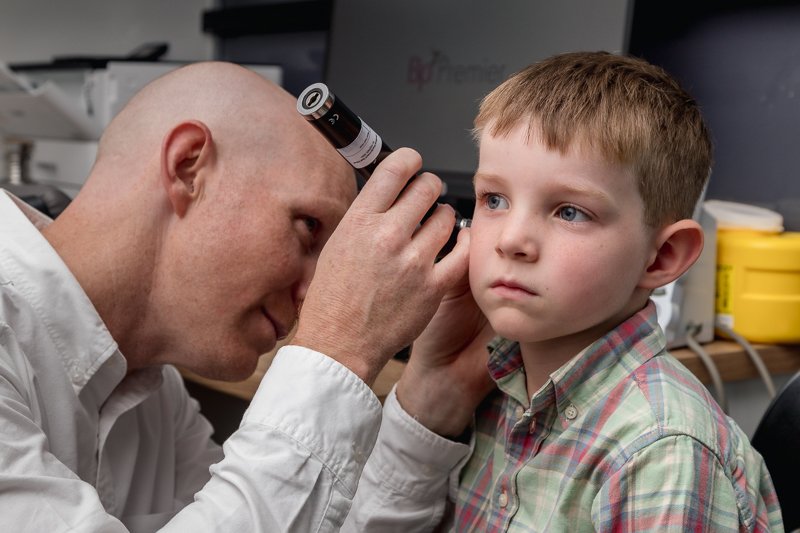Becoming a parent for the first, second, or eighth time is a huge adjustment. Alongside the immense joy of meeting your baby, come sleepless nights, hormone fluctuations, changed family dynamics and a mountain of dirty laundry.
Add in the impact of a global pandemic and it’s easy to understand why 1 in 7 new mums and 1 in 20 new dads struggle with postnatal depression.
What is Postnatal Depression and Anxiety?
Postnatal depression and anxiety is a mental health condition that may affect you when your baby is between one month and one year old.
It’s different from the baby blues, those teary few days of shifting hormones and post-labour exhaustion when your newborn is only days old. The baby blues is a very common experience that affects most new mums but passes fairly quickly.
Parenting is not easy and you can certainly expect some difficult days (and nights!). That alone doesn’t mean you have postnatal depression.
But when those feelings persist for more than two weeks, when the difficulties of motherhood constantly overwhelm the joys, then you may be experiencing postnatal depression and anxiety.
Risk Factors for Postnatal Depression
Anyone can develop postnatal depression and anxiety but it does tend to be more common if you:
● Had a difficult pregnancy or birth
● Have a personal or family history of depression or anxiety
● Tend towards low self-esteem or perfectionism
● Don’t have a strong support network, e.g. because your family is interstate or overseas
● Are in financial or relationship difficulties
● Have experienced the loss of a child
● Have twins or multiples
● Are younger than 18 or older than 35
● Are Aboriginal or Torres Strait Islander
● Are from a culturally and linguistically diverse background
● Are dealing with stressful life events like a bereavement, job loss, move or a history of trauma.
Symptoms of Postnatal Depression and Anxiety
Common symptoms of postnatal depression and anxiety include:
● Thinking you’re a failure as a mother
● Feeling sad, empty, ashamed, hopeless or tearful
● Feeling worried, panicky and on edge
● Getting easily upset or angry over small things
● Experiencing sudden mood swings
● Just not feeling like yourself
● Withdrawing from others
● Finding less enjoyment in things that used to bring pleasure
● Losing interest in yourself or your baby
● Feeling isolated, overwhelmed and disconnected
● Physical symptoms like headaches, nausea, changed appetite, body tension, shortness of breath, stomach aches or palpitations
● Thoughts of harming or killing yourself or your baby
● Trouble sleeping, even when your baby is asleep
● Being harsh on yourself and falling into negative thought patterns
● Struggling with the aftermath of birth trauma, such as flashbacks or nightmares
● Trouble concentrating, remembering or making decisions.
When to Get Help
If you’re experiencing 5 or more of these symptoms over a two-week period, then it’s time to see a GP.
Your doctor may use an objective scoring tool like the Edinburgh Postnatal Depression Scale to help with your assessment. This helps to create a picture of your feelings over the last week and can guide your doctor’s decisions on how to help you.
Postnatal Depression Treatment
The good news is that there are several treatment options for postnatal depression and anxiety.
Depending on your symptoms and situation, your doctor may:
● Help you identify and reach out to your existing support network
● Refer you to a Psychologist to help you reflect on your feelings, identify emotional triggers and learn new coping strategies
● Refer you to a Psychiatrist or inpatient Mental Health service if you or your baby are considered at significant risk – this is for both your and your child’s safety
● Prescribe medication, such as antidepressants or antipsychotics, taking into account the severity of your depression and whether or not you’re breastfeeding
● Encourage you to exercise – it boosts your mood and may help to treat your depression.
It can be hard to admit that you’re struggling as a mum. Many women delay getting the care they need because they fear being judged. Rest assured that asking for help is a sign that you care about your baby and about yourself.
You’re not alone. Many mums have experienced and recovered from postnatal depression. It might help to read their stories.
Covid-19 and Postnatal Depression
They say it takes a village to raise a child – and COVID-19 has effectively shut the village. It’s not surprising that new mums are reporting far higher rates of postnatal anxiety and depression right now.
Becoming a parent in the midst of a global pandemic is especially tough. Depending on when and where your baby was born, you may have experienced heightened anxiety, reduced support and deep sadness if grandparents and other loved ones couldn’t meet the baby.
Many support structures that new mums rely on have also been put on hold, causing increased isolation at a time when you crave connection. In response, the Gidget Foundation has created a Virtual Village to help parents during this time.
How Peregian Family Medical Centre Can Help
If you’re a new parent showing symptoms of postnatal depression or anxiety, then please come to see one of our GPs.
Our doctors are very aware of the challenges new parents face right now and want to help you through this so you can enjoy parenthood.
Don’t go it alone any longer. Make an appointment today.
Disclaimer
All information is general in nature. Patients should consider their own personal circumstances and seek a second opinion.






